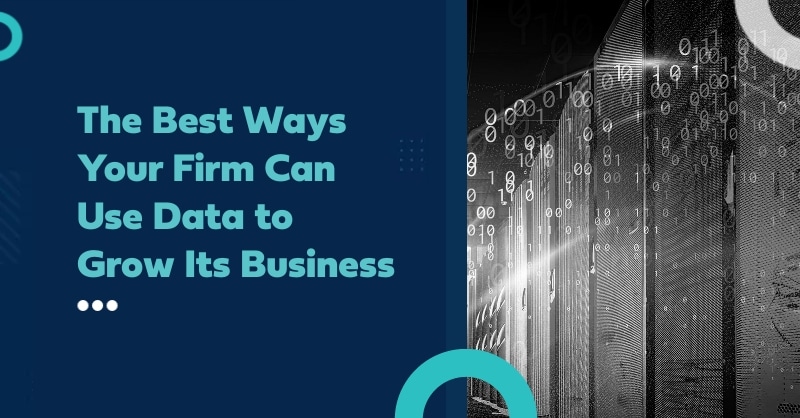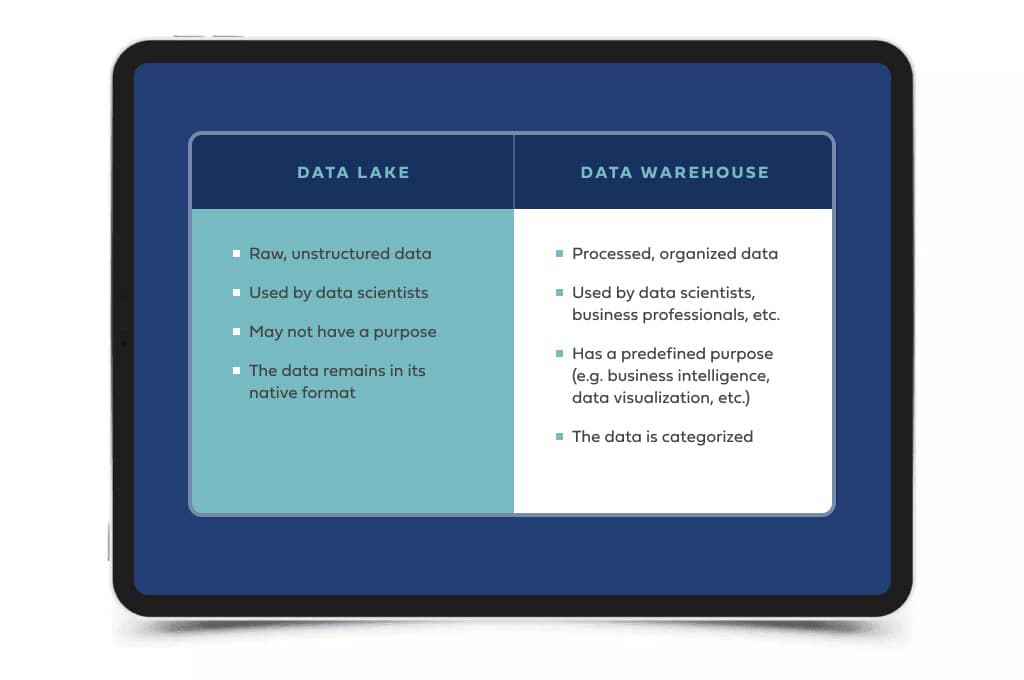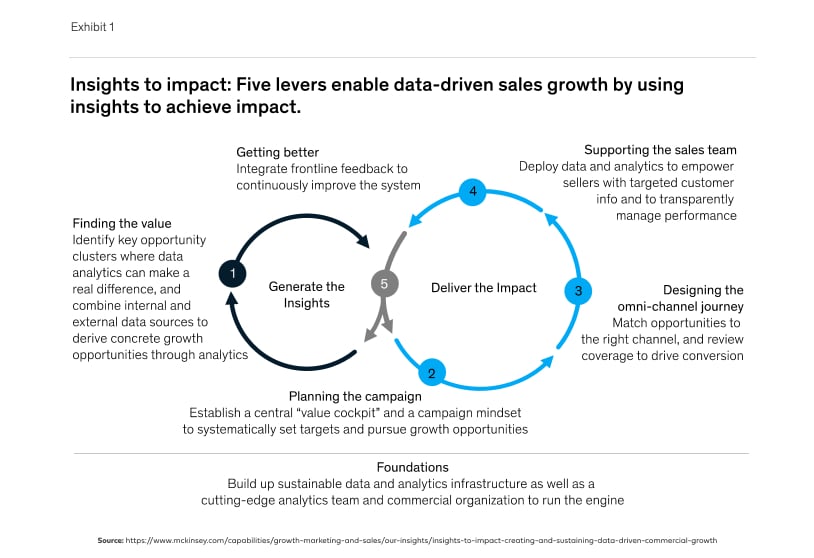
The Best Ways Your Law firm Can Use Data to Grow
Data is perhaps one of the most powerful assets that you probably already have! The question now is, how do you make sense of it? Find all answers here.
A study found that by 2025 the standard will be smart workflows and seamless interactions between humans and machines. This means the majority of employees will leverage data to optimize every aspect of the work.
While it’s clear to see data is, and will continue to be, one of the most powerful assets, the question now is, how can you make sense of it all?
In its initial stages, data can be messy because for one, it’s raw and undefined, and two, it’s usually stored in a repository known as a data lake. Typically, the majority of businesses are drowning in their own data lake; meaning there are enormous amounts of raw data that isn’t being utilized, and this is where businesses fail to scale.
However, a data lake is not the same thing as a data warehouse. Here’s a quick look at the differences between the 2:
The challenge that many businesses face is not of how to gather the data, but really more of how to structure and analyze that data to make sense of it.
Because a business strategy is only as good as its data usage, it’s important you make sense of all your data, and you can do that regardless of your analytical acumen. Let’s quickly look into how data propels firms forward and how you can make sense of your existing data set.
Where Do Data-Driven Firms Excel?
The firms that are realizing and taking advantage of their analytics excel in 5 key areas that others aren’t.
- Finding value – Pinpointing areas of opportunity and growth is much easier when they are backed up by internal and external data findings.
- Planning campaigns – Because the numbers won’t lie, it’s easier to prioritize the right trade-offs that ultimately, drive more customer value.
- Activating the omnichannel journey – Businesses align the customer experience with touchpoints that are driving the most conversions.
- Empowering the services – With numbers, it’s easier to monitor the entire progress of all your campaigns. In addition, data support front-line services by giving clear insights into what resonates with your audience and what doesn’t.
- Improving and getting better – No business is perfect, but the beauty behind the numbers is that they offer insights so you can make necessary changes over time.
See it in action here:
The Best Ways to Leverage Data for Law Firms
The best of the best data analysis goes beyond just acquiring facts and figures. An overarching strategy is key if you’re looking to grow confidently and consistently.
To make the most of your data we recommend the following:
1. Prepare for Change
You’ll often hear that you should “become data-driven,” but what does that mean, exactly? It all starts with the culture at a business. Studies show that around 91.9% of executives point to culture as the greatest impediment to becoming data-driven.
Ultimately, this means firms should prepare for change. Nowadays, everyone in a business should use some form of data to drive their decision-making. You can start by sharing victories, case studies, and verdicts with your staff to help expand and deepen their understanding.
We’ll go over two ways you can instill change in your firm. Let’s go over them.
2. Practice Data-Driven and Data-Informed Leadership
A cultural reset of a business usually starts at the top. So how can you lead by example?
Leaders have two options: data-driven or data-informed.
- Data-driven leaders begin by looking into the facts and figures to either prove or disprove a hypothesis. In this type of leadership, there is no fear if the data proves the theory is wrong.
- Data-informed leaders use selective amounts of data to better justify the actions taken – regardless of the findings.
The main difference lies in the value given to the data. In a data-driven culture, decisions depend a lot on the numbers and metrics, AKA the quantitative input. In a data-informed culture, there are other “human” factors taken into consideration, like intuition, past experience(s), judgment and any qualitative input.
3. Decide On the Metrics
What are you interested in measuring? For starters, anything related to leads, cost per lead, and conversion rates are important metrics to consider, but overall, it’s best to look into the entire sales funnel from awareness all the way to a conversion and acquisition.
Claim Your Marketing Metrics Checklist
4. Treat Data Like a Product
Today many keep their data in data lakes, which is often messy, with no real ownership of the data. By 2025, it’s believed data will be a product that’s backed up with dedicated teams working behind your entire digital monitoring process, from embedding data security to data engineering and self-service analytical tools.
Like with any product, if you treat your data as a product, you’ll be able to add new features and respond to user feedback and changes in the market with ease and confidence. (More on this in the last pointer.)
5. Track Consumer Behavior
What’s resonating the most with your audience(s)? What’s resonating the least? You can look into the “tops and tips”. For example:
- Web Analytics: Collecting data from your websites such as page views, session duration, bounce rate, and conversion rate helps in understanding consumer behavior and making data-driven decisions.
- Social Media Analytics: Analyzing the behavior and engagement of law firms’ social media followers helps in understanding their preferences and creating targeted campaigns.
- Surveys and Feedback: Gathering feedback from clients through surveys or directly through feedback forms can provide valuable insights into consumer behavior and preferences.
- Search engine optimization (SEO) data: Analyzing the keywords that potential clients use to find the law firm online helps in understanding their search behavior and making informed decisions on content creation and optimization.
6. Enhance Your Current Campaigns
Data helps in creating more personalized marketing campaigns for different segments of clients. This leads to higher engagement and conversion rates, as clients feel that the firm understands their needs and preferences.
If you are investing in digital advertising, then you’ll also be able to have more precisely targeted advertisements, as you’ll be ensuring that the right message is delivered to the right audience, at the right time.
7. Boost Your Cybersecurity
We’ve previously spoken about cybersecurity and how to keep your firm and clientele data safe from attacks. But, we cannot stress this enough: data plays a pivotal role in your cybersecurity. For example, it can help out with:
- Threat detection: By analyzing large amounts of data from various sources such as network logs, intrusion detection systems, and security devices, organizations can detect potential security threats in real-time.
- Vulnerability and incident response: In case of a security breach, data analysis can help organizations respond quickly and effectively by providing crucial information such as the scope, origin, and impact of the attack
8. Invest in a Legal Data Management Dashboard
If you’re looking to help support the development of data literacy across your entire firm, have improved data visibility, automate data collecting and reporting, and more, then chances are you should invest in a data management dashboard. One of the most powerful dashboards in the legal market is LawEval, which was designed from scratch by a team of engineers exclusively for law firms. It offers 3 powerful tools, which include a performance monitoring tool, a leads tracking tool, and a data analytics tool.
Discover How to Get Ahead With LawEval
Takeaway: Secure the Data, Secure the Business Strategy
By adopting a data-centric approach to decision-making, your firm can effectively drive the most value with time. The key is, to begin with, small initiatives like the ones stated above.
If you’d like to learn more about data management and data analytics tools and improve your business performance with the help of experts – feel free to schedule a 1-1 with us.






